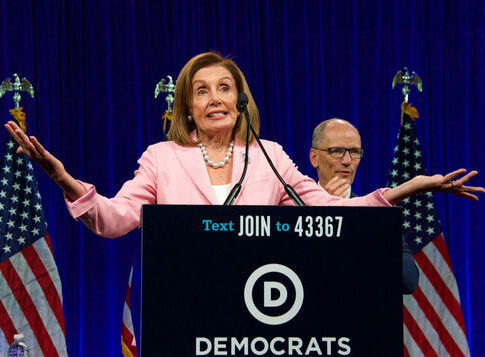As Nancy Pelosi, age 85, clings to her congressional seat despite mounting health issues, the double standard in media outrage over aging politicians exposes a threat to transparency and constitutional accountability.
Pelosi’s Health Crisis Highlights a Leadership Vacuum
Nancy Pelosi, once the most powerful woman in Congress, remains in office at 85 even after suffering a major fall and undergoing hip surgery in 2024. Her visible mobility challenges, now requiring the use of a walker, have reignited debates about the fitness of elderly lawmakers to serve. Despite stepping down as Speaker in 2023, Pelosi’s ongoing presence underscores the lack of any mandatory retirement age or effective mechanism in Congress to address cognitive or physical decline among its members. This persistent issue has real consequences for legislative effectiveness and national leadership.
The absence of formal safeguards stands in stark contrast to the 25th Amendment, which applies only to the presidency. While other high-profile lawmakers such as Senator Dianne Feinstein and Mitch McConnell have faced intense scrutiny—and, in McConnell’s case, stepped down from leadership roles—Pelosi’s situation has been met with a curious silence by many in the mainstream media. This disparity frustrates conservatives who value transparency and equal accountability, especially given Pelosi’s ongoing influence within her party and over national policy. Many see this double standard as symptomatic of a broader erosion of trust in American institutions.
Partisan Double Standards Fuel Public Distrust
Democrats, who have been quick to call for the retirement of aging Republicans, appear reluctant to apply the same standard to Pelosi. When Senator Feinstein’s cognitive decline became impossible to ignore, calls for her resignation came from all sides. Republican Leader Mitch McConnell’s own health scares were broadcast and analyzed relentlessly, leading to his eventual departure from Senate leadership. Yet, despite Pelosi’s age, health incidents, and reduced mobility, her continued service is often framed as a testament to resilience rather than a source of concern. This selective outrage undermines not only public trust but also the principle of equal treatment regardless of party affiliation.
The willingness of media and political elites to downplay or ignore serious questions about Pelosi’s capacity to serve is especially worrying for voters who expect accountability from all public officials. For conservatives, this selective criticism is part of a pattern: progressive leaders shielded from scrutiny while constitutional norms are bent or ignored for political convenience. The lack of bipartisan pressure for institutional reform perpetuates a status quo where party loyalty trumps the needs of the nation.
Institutional Stagnation and the Case for Reform
The Pelosi episode spotlights an urgent need for reform in how Congress addresses the issue of aging and incapacitated members. The current system, lacking term limits or age caps, allows individuals with significant health concerns to wield power long past their prime. While some argue that experience is invaluable, the recent spate of health crises among elderly lawmakers reveals the dangers of prioritizing tenure over capacity. Without mechanisms to assess and address declining physical or cognitive abilities, Congress risks legislative gridlock and weakened oversight—outcomes that harm every American, regardless of party.
Calls for generational change are growing louder, not only to ensure effective governance but also to restore faith in American democracy. As Pelosi is expected to retire at the end of her term in 2027, her case will serve as a test for whether Congress can adapt or remain mired in outdated traditions that put individual ambition above national interest.
Broader Implications for Conservative and Constitutional Values
For conservatives, the Pelosi dilemma is more than a partisan issue; it is a matter of safeguarding the Constitution and ensuring that government remains accountable to the people. The absence of checks on congressional incapacity is a direct threat to responsible governance, and the media’s selective outrage further erodes public confidence. As similar controversies arise, Americans who value tradition, transparency, and the rule of law must continue to demand reforms that prevent both parties from shielding their own at the expense of the nation’s future.
While no credible reports confirm severe cognitive decline in Pelosi, the physical limitations stemming from her recent injury highlight the risks of allowing lawmakers to stay in office indefinitely. The debate is not about ageism, but about institutional renewal and the health of American democracy. As the next election approaches, voters and lawmakers alike face a clear choice: prioritize experience at any cost, or implement sensible reforms that protect both the Constitution and the public trust.
Sources:
Pelosi, 85, is likely to retire at the end of term
What We Can All Learn About Hip Health From Nancy Pelosi’s Unexpected Fall
Nancy Pelosi’s Injury Prognosis
Nancy Pelosi | Biography, Facts, & Age


